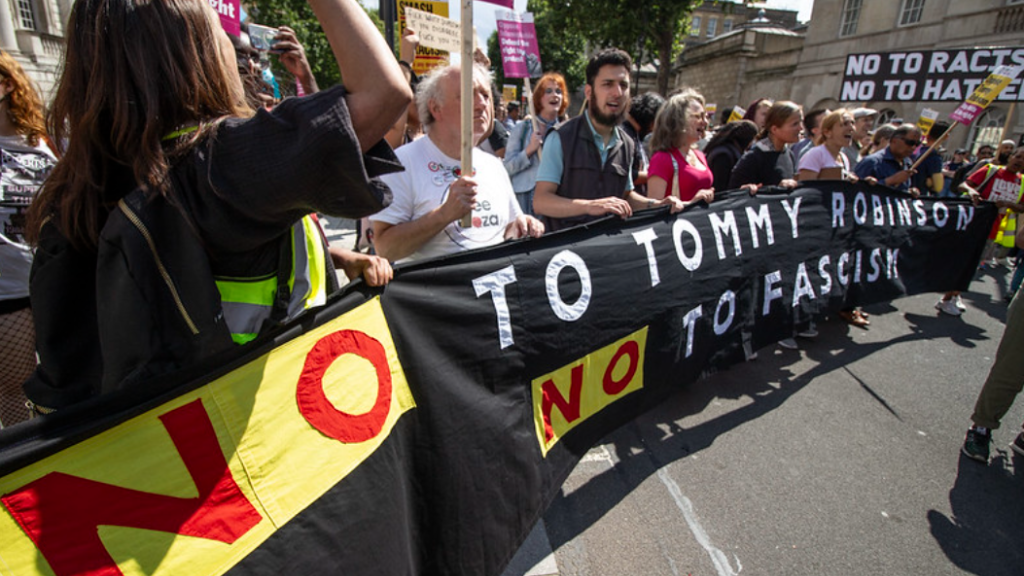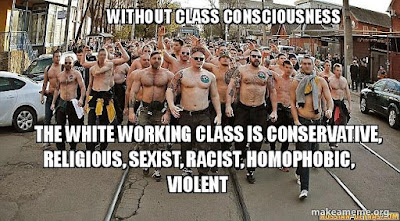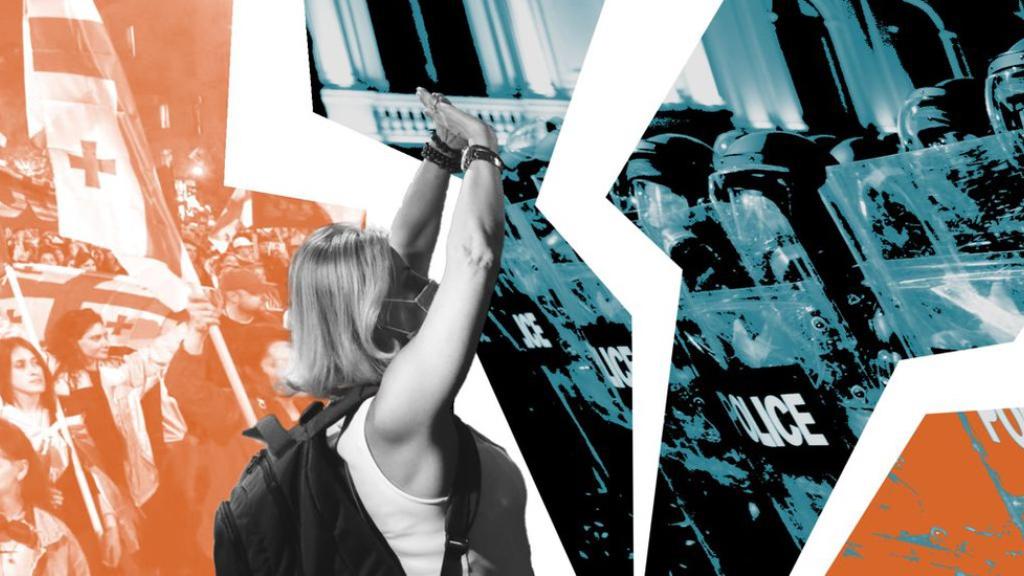A voice from Ukraine: “It’s time to organize”

From Takku
August 2, 2024
In the end of July 2024 an anarchist member of Ukrainian armed forces shared their thoughts with Takku as follows.
My name is Ljosha. I lived in Sweden before the war, but I came to Ukraine after Russia launched its full-scale invasion. Together with my comrades, I wanted to develop anarchist organizing and activities, to defend the Ukrainian people and nature, and to strengthen the anarchist movement in the revolutionary struggle. Originally I entered the extra-parliamentary leftist movement in 2004 by joining a Russian organization that included various left-wing opposition groups. In 2009 I moved to Ukraine. As an anarchist, I have adopted anarcho-communism as my approach and am in favor of an organized anarchist movement.
At the beginning of the war I was in contact with Dmitry Petrov. He was one of the organizers of the anti-authoritarian military unit and was looking for comrades all over the world who would be ready to participate in armed struggle against the Russian invasion, above all comrades who had revolutionary views and a desire for influencing the society as well. I left for Ukraine in March 2022. I was still on my way at the end of March, when the position of the anti-authoritarian unit in the Ukrainian Armed Forces changed due to the organizational reform of the army and it lost the opportunity to recruit new members.
I finally arrived in Ukraine only in June 2022, when the anti-authoritarian unit was already being completely terminated. The comrades in it were dispersing to different troop sections. However, Dima still held on to the idea of forming a new anarchist unit. I tried to help him with the organizing work. We were looking for a part of the army that we could join to start forming our own unit in a new place of the army's organization. Finally, a group of comrades, including Dima and I, joined an assault unit, with which we fought from the end of summer to the end of winter. Our intention was still to form an anarchist unit and invite other comrades to join. We didn't succeed in that, however, because the commanders of our department opposed the joining of people identified as women as well as foreigners who didn't know the language. It became clear that establishing our own unit in this department would not be possible, and we began to investigate other options.
Criticism and self-criticism are always inseparable part of revolutionary activity and thinking. We have to constantly evaluate our environment, review our methods of action, and see what works and what doesn't. The revolutionary strategy must be constantly developed and its implementation must be reflected upon. In 2022, the strategy, mainly formulated by Dima, was based on the idea that Russia would suffer a defeat in the war, which would lead to a revolutionary situation there and in Belarus. If, under these conditions, we would have an organized anarchist movement and an anarchist military unit in Ukraine as part of it, we could seize the revolutionary situation and realize our social project. I wouldn't say this strategy is outdated even now. I think we can still organize our activities according to this strategy, but in the assessment of the situation according to criticism and self-criticism, of course we see that there has been no anarchist military unit in Ukraine for two years. In different places within the army, there are anarchist comrades in smaller groups and individually, who for various reasons have not been able to organize into a single force. Also, looking at the course of the war, there can no longer be any certainty that Russia would face such losses that would lead to a revolutionary situation. A revolutionary situation may emerge, but the process has significantly slowed down. Of course, the new situation requires new approaches, updating strategy and tactics. For example, it may prove reasonable to return to economic struggle, to draw attention again to the injustice created by the capitalist system, and to consider the current perspectives of strikes or other economic struggle. Criticism, self-criticism and the search for new ways must be constantly present.
At the beginning of 2023, we left the unit where we had been fighting as volunteers and thus free to leave at any time. I left for Sweden because our joint plan included that I would work on some things there for a while. Dima, on the other hand, as agreed, began to look for opportunities to re-establish an anarchist military unit. Such an opportunity opened up. Dima gathered a group of a few comrades, and they joined a military unit, where they had been offered the opportunity to form their own media, on the condition that they first participate in battle and, in doing so, demonstrate their readiness for military action. They were promised that after this they could establish their own unit with its own media, to which they could invite more comrades, and which would have its own media. Unfortunately, Dima and two other comrades died during their first mission, in the Battle of Bahmut on April 19, 2023.
If we are serious about the revolutionary struggle, I think we must continue the efforts that our fallen comrades could not complete. Therefore, I took it for granted that I had to return to Ukraine and try to continue Dima's efforts. I returned here in June 2023. We have developed networking between separated anarchist comrades, but we have not succeeded in creating a new unit of our own, because it is not possible at this time due to the army bureaucracy, among other reasons. I myself am currently in the Ukrainian army as a regular soldier, so no longer as a volunteer. I was injured in November last year and in March this year and I am going to Sweden for some time for treatment, because my injuries are quite serious. The wrist is badly broken and a bone had to be moved from the rib to the hand. Above all, healing requires time, and I aim to use it by participating in the international anarchist struggle in Europe.
As it is well known, after the war started, Finland and my country of residence, Sweden, with the communities of which I have strong connections, joined NATO. Of course, I consider this a negative development both for our movement and for the societies of these countries. Anarchists must oppose NATO, first of all, because it is of course an imperialist war organization. Secondly, it is a matter of solidarity. The joining process of Finland and Sweden included many kinds of agreements with the imperialist state of Turkey. Turkey is trying with all its might to suppress the most successful revolutionary project of our time: the Kurdish revolution and the self-governance in Rojava. If we accept joining NATO, we will betray our comrades in Kurdistan. As revolutionaries, we cannot be in favour of NATO, and certainly not in support of Ukraine or any other country joining it. Ukraine's rapprochment with the Western imperialist bloc also poses a threat to the working people of Ukraine, because with rapprochement the exploitation of workers will probably increase. The rapprochement of the Ukrainian political leadership with Turkey would be harmful in every way. The expansion of NATO is of course harmful for the global revolutionary movement. Although we now defend ourselves also with NATO weapons against Russian imperialism, we cannot under any circumstances sympathize with the Western imperialist bloc, which also includes the state led by Erdogan.
Regarding Russophobia in Ukraine, I would say that it is more of a cultural than a political phenomenon. Talks about the sameness of all Russians or that "a good Russian is the one who cannot be seen with a thermal camera" are cultivated by actors in the cultural sector who have material interests in this. Even after 2014, the Maidan and the start of the war, the products of the Russian culture and entertainment industry have played and still play a significant role in the Ukrainian market. From the point of view of Ukrainian cultural production, this is disadvantageous. Banning Russian language and culture is probably more the work of the cultural elite than the political elite, although it is also driven by politicians. Ukrainian mass entertainment and cultural production has not reached the level of Russian production in Ukraine in terms of popularity. For example, in the winter a new TV-series about a criminal gang in 1980s Kazan was shown in Russia. I think the whole of Ukraine was watching it. It was very popular. A few cultural leaders and also politicians in Ukraine publicly condemned its watching, pointing to the war and to the imperialist narratives in the series. Despite everything, it was watched. So it seems to me that hatred against Russian people, contempt for everything Russian and Russian-speaking is being incited specifically by the actors of the cultural industry, motivated by their own material interests. In society, the situation is different. Also, a significant part of the Ukrainian army is Russian-speaking. The former MP and philologist Iryna Farion, who was recently murdered in Lviv, was widely regarded as a freak due to her loud and ultra-nationalist activities against Russian language, and she was expelled from Lviv University because of public pressure.
On the other hand, in Ukraine the creation of a nation-state and the nation-building project are of course present. Ukraine was not a nation-state until 1991, when several countries that broke away from the Soviet Union began the process of building their own states. The creation of a nation-state continues in Ukraine, and we, as anarchists, have without doubt a negative attitude towards it. Another nation-state building project is also underway on the territory of Ukraine – Russia's colonialist project. Views according to which the Ukrainian language is not really a language and the Ukrainian people are not really a people, and according to which Ukraine should remain under Russian control, have been spread diligently and have had a great impact on society through business and a certain part of the Ukrainian political elite. A significant part of the political elite was strongly pro-Russia at least until 2013. A competition between the Ukrainian nation-building project and the Russian colonialist project is taking place in the territory of Ukraine. Both projects are harmful from anarchist perspective, as both an empire and a nation-state are instruments of subjugation, exploitation, repression and injustice. So of course we have to oppose both.
In Ukraine's history there are previous nation-building projects. During the Ukrainian civil war or war of independence, in which various left-wing and right-wing groups were involved, the People's Republic of Ukraine was founded, among others. However, as a result of the war in 1921, the territory of present-day Ukraine was divided between Poland and the Soviet Union, and the nation-building project ended for a time. In 1991, one of the conditions for forming a nation-state was fulfilled, i.e. the emergence of a national elite. In this case, it was created by the party machinery. In the last years of the Soviet Union, nation building projects were already underway in all Soviet republics. When Ukraine became independent, a ready-made local party-elite took the lead of the nation-state project. A bureaucracy had also been created, which could also be adopted as the national state bureaucracy of Ukraine. The establishment of the Soviet party leadership and local Soviet bureaucrats as rulers of an independent state took place in Ukraine in the same way as in many other former Soviet republics in 1991. The imperialist and colonialist project was replaced by the nation-state project. As said, anarchists of course oppose to both of these.
To the question of what I think comrades in Western Europe should do now, I would say that it depends on the local context. In Sweden, for example, there are only a few collectives that define themselves specifically as anarchists. The dynamics of the movement are variable there. At one time, there were strong left-wing groups in Sweden that worked impressively on anti-fascism, for example the Revolutionary Front, which dissolved under the pressure of the state. Also in the West, states suppress revolutionary activity. Many members of the Revolutionary Front got prison sentences, mainly for attacks on the far-right. In Sweden, there has also been a strong solidarity movement supporting the Rojava revolution. There, the strength of the left-wing movement in general varies considerably. Of course, in Sweden too, anarchists should strive, and are striving, for a situation where the movement is as strong as possible, organized and ready to take on historical challenges.
It is unlikely that the war would lead to the complete defeat of Ukraine. Earlier there were hopes that it would lead to a military victory for Ukraine. Now there is no longer the same certainty of victory, but it seems that Ukraine will not completely lose the war. It may be that the war acts as an enforcer of the Ukrainian nation-state and the artificial unification of its society’s upper layers.
As for the support of Western comrades for Ukraine, I think people should approach the issue considering that we have comrades here in difficult situations. As a movement, we should show solidarity to comrades in difficult situations. I think now is the time to put efforts on organizing work, both in the West and in Ukraine. Here, Solidarity Collectives is a good organization and volunteer network, whose activities, in addition to humanitarian aid, specifically aim at organizing the movement. Solidarity Collectives can be contacted directly to support such activities.
In addition to Ukrainians, Russians and Belarusians, the anti-authoritarian military unit also included Western comrades. Some had military experience in Kurdistan as well. There were comrades who did not know Russian or Ukrainian and could only communicate in English. The language problems were solved collectively and they were also overcome on the battlefield. Harris and Ciya, the comrades who fell at the same time as Dima, had been here already for a while. Ciya, who had also been in Kurdistan, was involved in the Solidarity Collectives, and Harris fought in the International Legion – which was not an anarchist or anti-authoritarian unit – before joining Dima's new endeavour. There is currently no anarchist military unit to join in Ukraine. If one is considering joining the armed defense of Ukraine, it is of course morally justified in the sense that the Ukrainian people must be defended against the aggressor. If one wants to join, it is good to contact the local comrades first. However, I personally would not invite comrades to join the Ukrainian army now that we do not have our own unit within which to strive towards our own goals. If one can be created, the situation will be different, and then of course it would be great if comrades from the West would join in as well. Now, however, I think it's really the time to put our efforts on forming a unified, organized anarchist movement everywhere.




